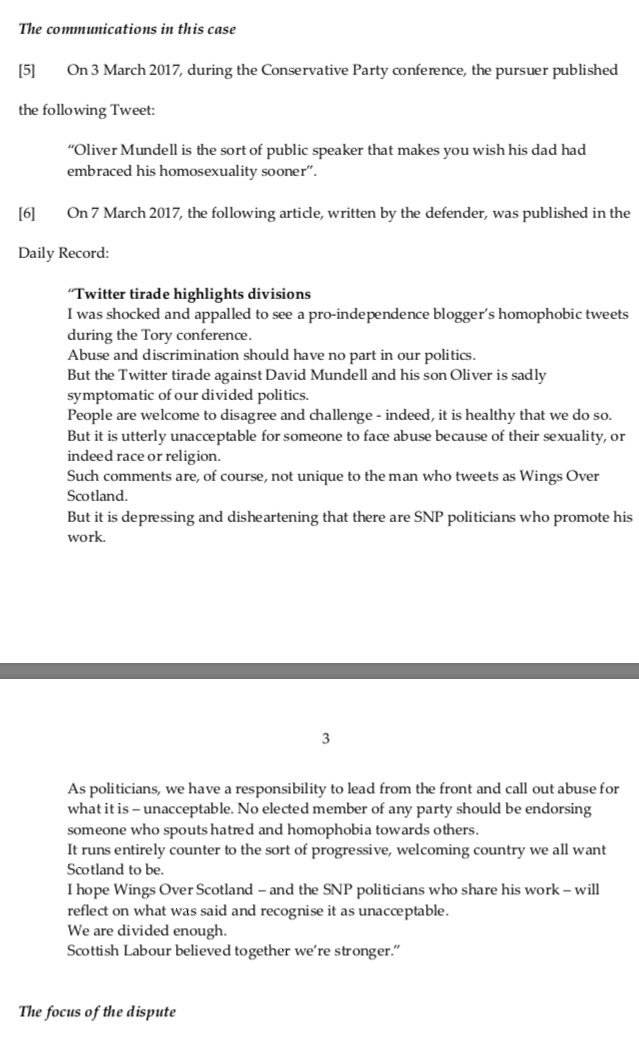
On to who was being “abused” in the tweet - Kezia Dugdale says “the Mundell family was being abused”; Oliver for his speaking ability, David for his sexuality
“It is.”
“I’m not sure I understand it.”
Some high-level courtroom bantz going down here.

Twitter may remove this content at anytime, convert it as a PDF, save and print for later use!

1) Follow Thread Reader App on Twitter so you can easily mention us!
2) Go to a Twitter thread (series of Tweets by the same owner) and mention us with a keyword "unroll"
@threadreaderapp unroll
You can practice here first or read more on our help page!

